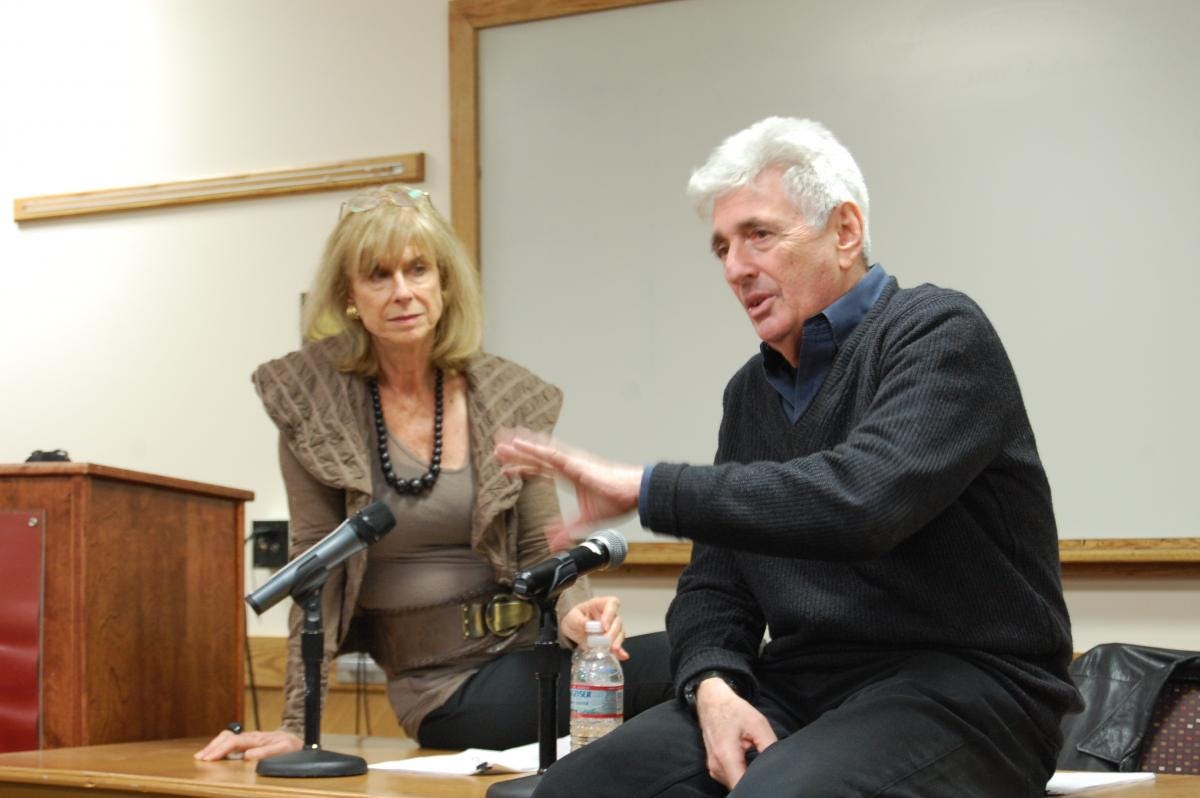Wake Up To Politics - February 15, 2022
Wake Up To Politics: Russia *might* be de-escalating
by Gabe Fleisher
Good morning! It’s Tuesday, February 15, 2022. Election Day 2022 is 266 days away. Election Day 2024 is 994 days away.
The latest from Ukraine: Three signs of possible de-escalation
U.S. officials have pinpointed Wednesday as a possible date when Russia might launch an invasion of Ukraine.
But 24 hours before that rumored start date, there are a few signs worth considering that the situation in Ukraine might actually be de-escalating. Before I lay them out for you, I want to caution that the Russian government is not exactly the world’s most reliable source — so it’s hard to know what to believe and what not to.
To that end, for each point of possible de-escalation, I’ll explain why it might be a signal of easing tensions in the region — and also include a caveat of why it might not be. Let’s dive in:
1. Russia is withdrawing some troops. Russia’s Defense Ministry announced early this morning that about 10,000 of the 130,000 troops it has amassed near Ukraine’s borders will be pulling back and returning to their bases.
In a video message, Russian Maj. Gen. Igor Konashenkov claimed that the troops had merely been moved near Ukraine as part of a set of “large-scale drills,” some of which he said were now finished. “A series of combat readiness drills, including exercises, have been completed in accordance with the plan,” he said. As a result, Konashenkov added, the troops that have finished their drills will begin returning today to where they are normally stationed,
Caveat: There still hasn’t been any evidence of troops actually being pulled back, so let’s not take Russia at their word just yet. “We’ll believe it when we see it,” Ukrainian foreign minister Dmytro Kuleba said in a news conference this morning. “If we see the withdrawal, we believe in de-escalation.”
It’s also worth noting that even if the troops in question do withdraw, Russia would still have a large number of soldiers surrounding Ukraine, so the threat of an attack would not suddenly disappear. Additionally, the troops Russia said it would be pulling back are from the military districts closest to Ukraine — so the bases they would be returning to are still not far from the country. The troops that have moved near Ukraine from farthest away are not going anywhere.
Furthermore, CBS News reported on Monday that some Russian units near Ukraine had moved into “attack positions,” which could point towards a forthcoming assault.
2. Russia insists a diplomatic resolution is still possible. In a televised meeting between Russian President Vladimir Putin and his top advisers on Monday, the Kremlin “sent its strongest signals yet that it would seek further negotiations with the West rather than launch immediate military action,” as the New York Times put it.
Russian Foreign Minister Sergey Lavrov told Putin in the meeting that “a way forward” could still be found diplomatically, praising his counterparts from the West as showing a “willingness to enter into serious negotiations.”
“I believe that our possibilities are far from exhausted,” Lavrov continued, referring to diplomatic negotiations with the West. “I would propose continuing and intensifying them.”
“Good,” Putin replied simply.
Caveat: While this is a promising rhetorical signal that Russia remains interested in resolving the situation diplomatically, it came during a highly choreographed meeting at the Kremlin that was intended for public consumption — so let’s not read too much into it.
Plus, negotiations between Russia and the West have dragged on for weeks now without any sign of a breakthrough. The U.S. and its allies want Russia to leave Ukraine for good and definitively promise it won’t invade. Russia wants the U.S. and its allies to scale down the North Atlantic Treaty Organization (NATO) military presence in his sphere of influence, and promise Ukraine will never be added to NATO. Neither side seems especially poised to make such concessions.
3. Ukraine signaled it might be willing to drop its NATO bid. Ukraine’s ambassador to Britain suggested in an interview on Monday that his country might be willing to drop its push to join NATO, which would be a major concession for Russia to walk away from the standoff with.
Vadym Prystaiko, the ambassador, told the BBC that Ukraine could be “flexible” in its goal of joining the alliance and might be “pushed” to reverse course due to Russia’s pressure.
Caveat: Although the comments sparked hope that it could lead to a possible diplomatic resolution, Ukraine soon walked them back.
“Ukraine’s strategic course on joining NATO remains unchanged,” the country’s foreign minister wrote on Twitter. “It is enshrined in our Constitution and National Foreign Policy Strategy, supported by a growing majority of Ukrainians. It’s only up to Ukraine and thirty NATO allies to decide on the issue of membership.”
Prystaikoalso also walked back his comments later in the day.
A few more related developments worth watching:
The U.S. announced on Monday that it was temporarily closing its embassy in Kyiv, Ukraine’s capital, and moving the small number of remaining American diplomatic staff to Lviv, a smaller city in western Ukraine.
Per Yahoo News, the Department of Homeland Security and the FBI warned top cybersecurity personnel across the country that Russia could stage cyberattacks against the U.S. in conjunction with a possible invasion of Ukraine.
The State Department also detailed plans to offer a Ukraine a $1 billion loan guarantee to help boost its economy amid the uncertainty sparked by Russia’s troop buildup.
Here’s what else is happening this morning...
In the courts: “A New York City federal judge said Monday he would dismiss Sarah Palin's claim that she was defamed by The New York Times when it incorrectly linked her to a 2011 mass shooting in Arizona that nearly killed former Rep. Gabby Giffords.” NBC News
“Donald J. Trump’s longtime accounting firm cut ties with him and his family business last week, saying it could no longer stand behind a decade of annual financial statements it prepared for the Trump Organization, court documents show.” New York Times
In Canada: “Prime Minister Justin Trudeau invoked emergency powers Monday to quell the paralyzing protests by truckers and others angry over Canada’s COVID-19 restrictions, outlining plans not only to tow away their rigs but to strike at their bank accounts and their livelihoods.” Associated Press

In the pandemic: “Washington, D.C., Mayor Muriel Bowser said Monday that the city will lift its mask requirements for many public venues, including bars, restaurants and schools — but it will still mandate masks for schoolchildren. The city’s vaccine mandate for indoor venues will also expire starting Tuesday.” Fox News
“Secretary of State Antony Blinken acknowledged in a virtual meeting with other countries on Monday that the globe is not on pace to meet a goal of vaccinating 70% of the entire human population by later this year, a target set in 2021 both by Biden and the World Health Organization.” Bloomberg
Each morning, WUTP’s team of contributors rotate to offer a briefing on the latest news in a different policy area. It’s Tuesday, so Kirsten Shaw Mettler is here with the week’s top education headlines.
This morning, she’s doing a deep dive into an important story that’s gripping the world of higher education:
Harvard is facing scrutiny for sexual misconduct allegations. Three graduate students sued Harvard last week, alleging that the university ignored their complaints regarding John Comaroff, a professor of anthropology, African, and African-American studies.
The students — Margaret Czerwienski, Amulya Mandava and Lilia Kilburn — all study anthropology at Harvard and claim that the school has long known Comaroff as a predator. Kilburn alleges that Comaroff touched her inappropriately a number of times and made threatening comments regarding her sexuality, while Czerwienski and Mandava claim that the professor groped another, unnamed graduate student.
Czerwienski, Mandava and Kilburn all claim that Comaroff retaliated against them for reporting his behavior, threatening their career prospects. They also claim that, although reports were filed under Title IX (an anti-gender discrimination in education law), Harvard took “no meaningful action.” Lawyers for the professor say that “Comaroff categorically denies ever harassing or retaliating against any student.”
Harvard did investigate Comaroff in 2020, but the plaintiffs claim that the university only took action after information on Comaroff’s alleged behavior appeared in the news. Additionally, the plaintiffs claim that the process was needlessly traumatic; Harvard allegedly obtained Kilburn’s private therapy records and shared them with Comaroff.
The anthropology professor was found responsible for verbal misconduct by Harvard, but not unwanted sexual contact. The findings resulted in punishment — Comaroff was given a one semester suspension, is not allowed to independently advise new graduate students through the 2022-23 academic year, and is temporarily barred from teaching required courses — but the suing graduate students claim that these repercussions were merely “a slap on the wrist.”
Harvard disputes the lawsuit, saying that the allegations are “in no way a fair or accurate representation of the thoughtful steps taken by the University.” The issue has caused turmoil at the school: 38 Harvard professors published a letter this month defending Comaroff, leading to a counter letter by a separate group of 73 Harvard scholars. After the new lawsuit was filed, nearly all of the signatories from the first letter wrote a follow-up note entitled “We Retract,” taking back the initial defense of their colleague.
The incident throws Title IX in the spotlight at the same time advocacy groups have claimed that the Biden administration has been too slow in protecting it. In December, the administration announced that new Title IX guidelines, reversing Trump-era policies on sexual misconduct, would be issued in April of this year.
President Biden promised during the 2020 campaign to overturn former Education Secretary Betsy Devos’ Title IX policies, which enhanced protection to those accused of misconduct.

More education headlines, via Kirsten:
New rules governing how teachers can talk about race puts educators in a difficult position, especially during Black History Month.
The Education Department dismissed a claim that Brigham Young University illegally discriminates against LGBT students.
Howard University received another bomb threat on Monday morning.
All times Eastern.
President Joe Biden will receive his daily intelligence briefing at 9:50 a.m. Later, at 2 p.m., he will address county officials from across the country at the National Association of Counties’ annual Legislative Conference at the Washington Hilton.
White House press secretary Jen Psaki will hold her daily press briefing at 3 p.m.
The Senate will convene at 10 a.m. and resume consideration of various Biden nominees. At 12 p.m., the chamber will vote on confirmation of Robert Califf to be the Commissioner of the Food and Drug Administration (FDA). Following the vote, the Senate will recess until 2:15 p.m. for the weekly party caucus meetings.
Califf previously served as FDA commissioner in the final year of the Obama administration. His nomination barely advanced in a 49-45 vote on Monday, with four Democrats opposed and five Republicans in favor. The Democratic opposition has largely stemmed from “his ties to the pharmaceutical industry and his handling of the opioid crisis” in his first stint at the agency, per the New York Times.
The Senate Finance Committee will hold a hearing at 10 a.m. on youth mental health.
The Senate Banking, Housing, and Urban Affairs Committee will hold a hearing at 10 a.m. on stablecoins, which are cryptocurrencies that have their value tied to a stable asset (such as the U.S. dollar).
The banking panel will then meet at 2:15 p.m. to vote on Biden’s five nominees for the Federal Reserve Board, including his re-nomination of Jerome Powell for a second four-year term as Fed chair.
The House will convene at 10 a.m. for a pro forma session — a brief meeting held to fulfill the chamber’s constitutional requirement of meeting every three days, in which little to no business will be conducted.
The House Homeland Security Subcommittee on Transportation and Maritime Security will hold a hearing at 2 p.m. on the recent surge in firearms being intercepted at Transportation Security Administration (TSA) checkpoints.
The Supreme Court is not in session.
That’s it for today. If you enjoy Wake Up To Politics, it’s always appreciated if you donate to support the newsletter or buy some merch. Or if you tell your friends and family to sign up at wakeuptopolitics.com.
If you have any questions or feedback, feel free to email me: my inbox is always open.
Thanks for waking up to politics! Have a great day.
— Gabe







